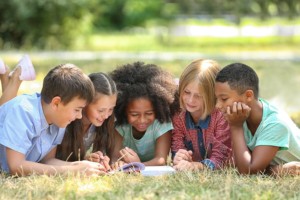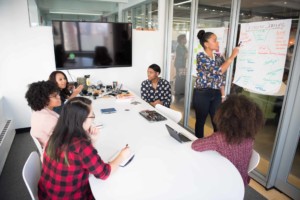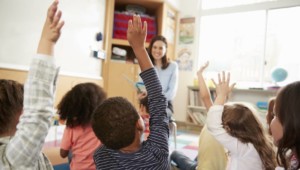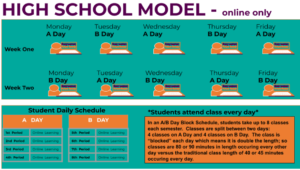2020 Forecast: Last Word (3 of 3)
“You as a pupil will be placed in the centre. Personalised education means that the school and the teachers start from and adapt themselves to your goals, your ambitions and your potentials….The fundamental principle behind our method of learning is the conviction that all pupils are different and that they learn in different ways and at different rates, and that it is the school´s task to meet these differences.”
“You will have a teacher as a personal tutor who will follow you through your school years, help you and train you in planning and developing your learning strategies, follow up your school work and be available for support and control. As you learn to set your goals yourself and to plan your own time, you will be allowed to take a greater responsibility for your own studies. Thus, our method of working will teach you to take personal responsibility and to become independent.”
This quote is not from a future scenario planning exercise, it’s a description of a school, actually 22 schools with 10,000 students, but as you may have guessed from the spelling, they’re not in the US. The chain is Kunskapsskolan in Sweden where a national voucher system supports innovative schools. Their web site is a pretty good description of where learning is headed—at least in places where leadership is focused more on kids and the future than adults and the past.
The KnowledgeWorks Foundation recently released the Future of Learning, a map that points into the fog. Like Clayton Christenson’s book Disrupting Class, Future of Learning is really a list of change forces more than a forecast but both are important contributions.
Like Kunskapsskolan, the Forecast points to personalization as the biggest change on the learning horizon. The “emerging toolset for designing personalized learner-centered experiences and environments” will utilize “data about preferences and interactions.” Think 1) World of Warcraft for science, 2) Facebook for homework help, and 3) YouTube for a customized series of selected learning videos and lectures.
The second big change force is the development of a global learning economy—an informal learning ecosystem that will envelop, support, and occasionally compete with formal schooling. Emerging developments include learning games, peer-to-peer learning networks, online tutoring, and virtual schools.
So what does it mean for you and your kids? Well, it depends in part on where you live. This won’t be Friedman’s Flat World, it’s Florida’s Spiky World where progress depends on talent, leadership, and investment. In some places, learning will change a lot. In other places, defenders of the status quo will keep things largely the way they—and schools will continue to simply replicate social class.
Progress toward an engaging personalized learning landscape will be fastest where governments create space for innovation and where the private sector is encouraged in participate. There will be some interesting innovations in informal learning developed in the US, but interesting public schools are more likely to show up in the EU or India.
The Federal stimulus will push the standard reform agenda but won’t change the entrenched power dynamic—unions, associations, policies, and traditions will continue to define ‘school’ in America. In a few states and a few countries, parents and students will have interesting educational options and educators will participate in a diverse education employment market. There will be new schools, new roles, and wonderful but confusing choices,
In short, the 2020 education forecast is more of the same with a few more computers or something completely different—it depends where you live…and how you vote.








0 Comments
Leave a Comment
Your email address will not be published. All fields are required.